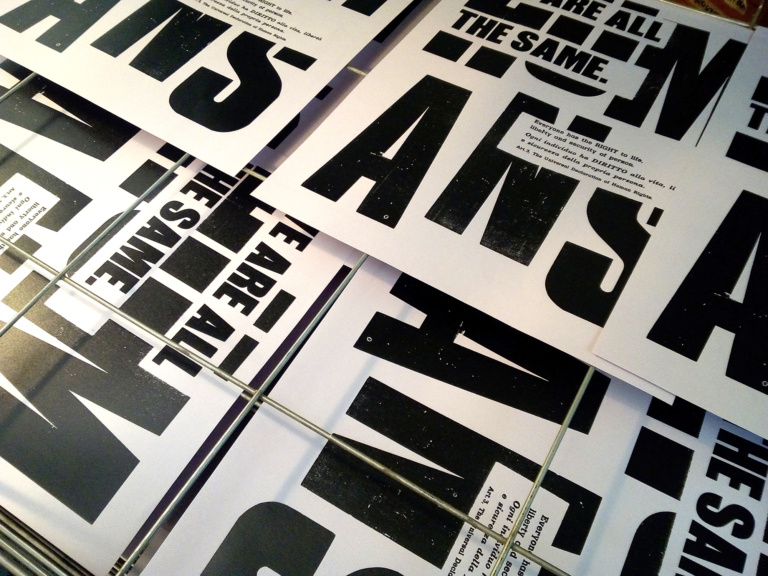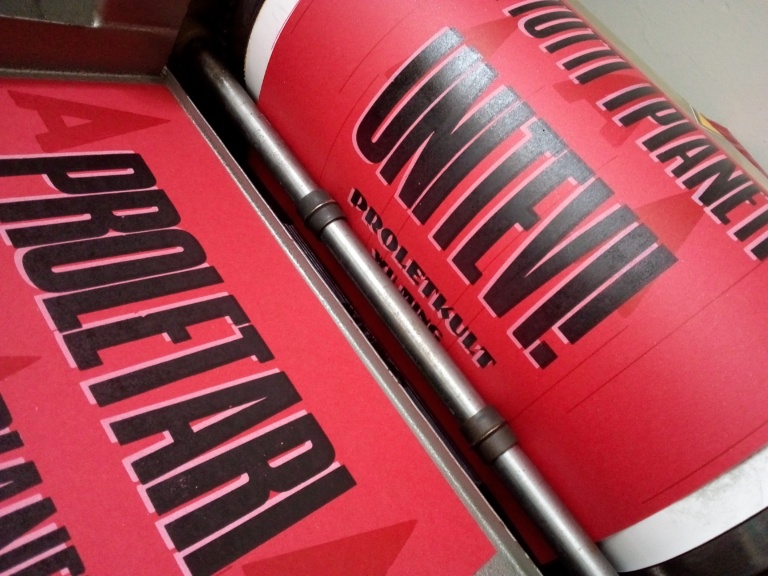Solidarity
Harry Bridges è reputato, a ragione, il più importante sindacalista americano del XX secolo.
Originario dell’Australia, approda negli Stati Uniti nel 1920 come marinaio. Lasciate le navi per il lavoro nei porti si iscrive prima all’Industrial Workers of the World (IWW) e successivamente alla International Longshoremen’s Association (ILA), sindacato che cambierà nome, nel 1937 in International Longshoremen’s and Warehousemen’s Union ILWU).
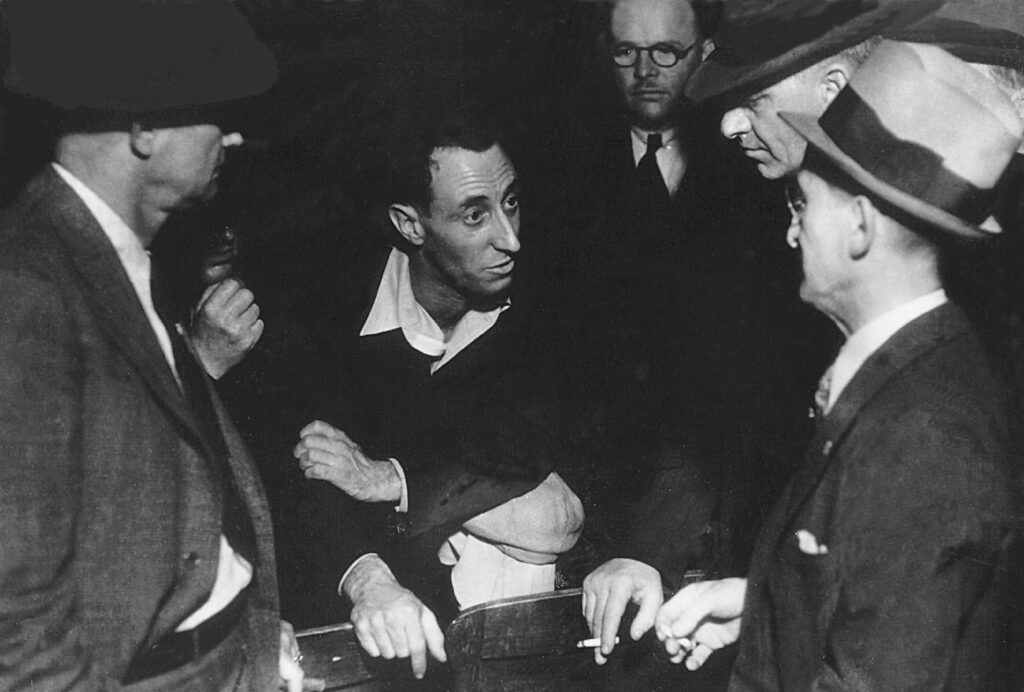
Bridges rimase alla guida del sindacato per circa quarant’anni, dal Grande Sciopero del 1934 di San Francisco fino al 1977, quando andò in pensione. Quarant’anni duranti i quali la classe lavoratrice riuscì a organizzarsi nonostante gli ingenti dispositivi di repressione messi in atto sia dal governo federale che dai padroni. Uno dei capisaldi dell’ILWU, così come dell’IWW, fu il riconoscimento di pari uguaglianza fra lavorator*, a prescindere dal genere, dalla religione e dall’opinione politica (anche se il fatto di essere di matrice socialista non credo rappresenti tuttora un buon invito per idee opposte).
Di tutto questo Bridges è stato uno dei principali artefici. Ovviamente, come per tutte le figure storiche complesse, anche nella sua biografia si possono trovare alcune incongruenze. Si tratta di aspetti abbastanza comuni nella vita di persone che hanno ricoperto ruoli importanti per la società e che incidono poco nella loro eredità culturale.
Non so quanto HB sia conosciuto in Italia, credo poco al di fuori di una certa cerchia di compagni. Di sicuro non è una tra le figure mainstream citate più o meno a sproposito.
Penso che questo sia dovuto soprattutto a una visione molto tagliata con l’accetta della storia degli Stati Uniti che sovrappone l’anticomunismo governativo al popolo americano tout court. L’attivismo di oggi, da quello di BLM a quello dei vari sindacati (ebbene si, esistono ancora e sono attivi più che mai) passando per il rinnovato interesse da parte delle giovani generazioni nei confronti del pensiero di Marx ed Engels, dimostra proprio il contrario.
Personalmente, il mio primo incontro con Harry Bridges e il sindacalismo americano è avvenuto sulle pagine del romanzo Noi saremo tutto di Valerio Evangelisti.
In quel maestoso e corpulento volume, Evangelisti fa un sunto eccezionale della storia del sindacalismo statunitense, una vera e propria spinta all’approfondimento.
Dopo molti anni da quella lettura, e con parecchie altre in mezzo, mi è sembrato giusto dedicare un poster a Harry Bridges.
Giusto perché, mai come ora, è importante fissare dei paletti. La solidarietà di classe è uno di questi.
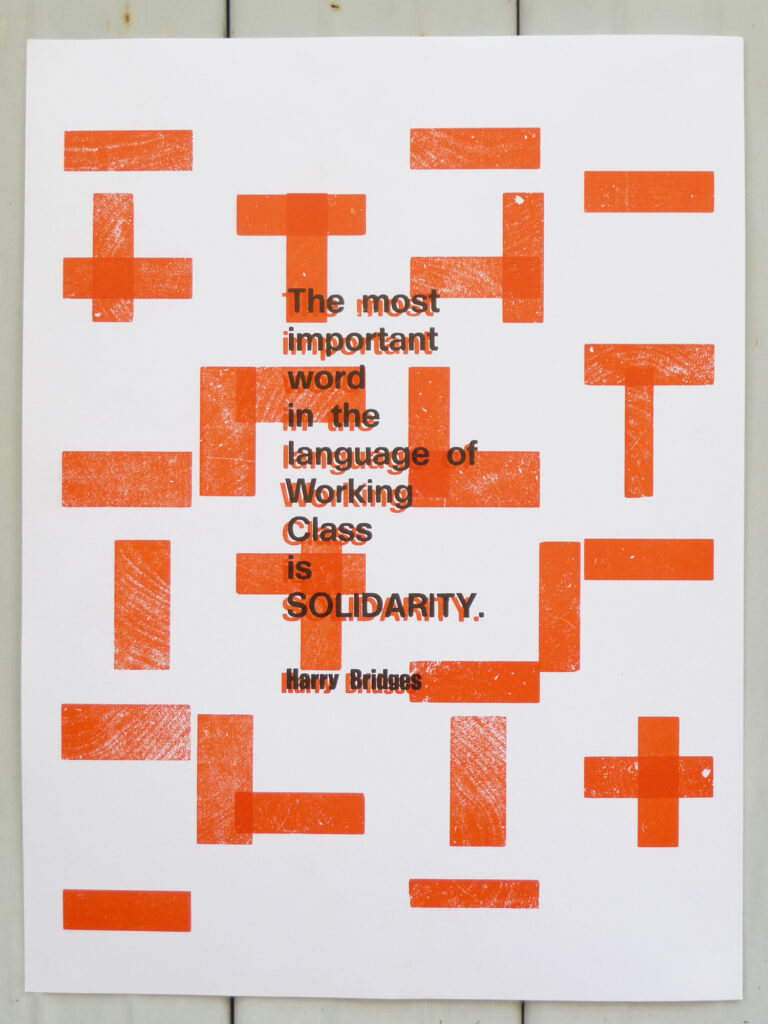

Harry Bridges is rightly considered the most important American trade unionist of the 20th century. Originally from Australia, he reached the United States in 1920 as a sailor. Leaving ships for work in ports, he first joined the Industrial Workers of the World (IWW) and then the International Longshoremen’s Association (ILA), a Union that would change its name in 1937 to International Longshoremen’s and Warehousemen’s Union ILWU).
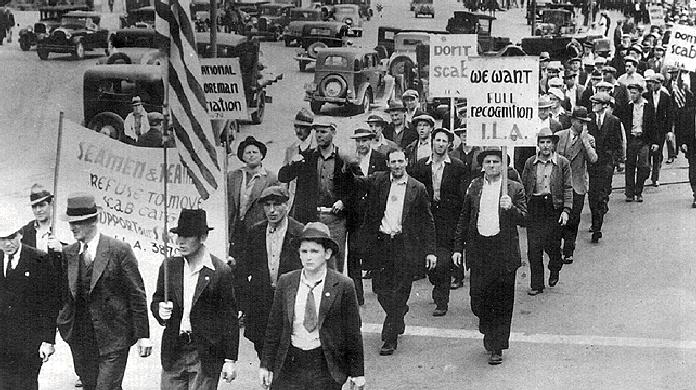
Bridges stayed at the head of the Union for about forty years, from the Great Strike of 1934 in San Francisco until 1977, when he retired. Forty years during which the working class managed to organise itself despite the massive repressive measures taken by both the federal government and employers. One of the cornerstones of the ILWU, as well as the IWW, was the recognition of equal equality among worker*, regardless of gender, religion or political opinion (although I do not believe that being socialist is still a good invitation for opposing ideas).
Bridges was one of the main architects of all this. Obviously, as with all complex historical figures, there are some inconsistencies in his biography. These are quite common in the lives of people who have played important roles in society and have little impact on their cultural heritage.
I don’t know how much HB is known in Italy, I think little outside of a certain circle of comrades. He is certainly not one of the mainstream figures mentioned more or less inappropriately.
I think this is mainly due to a very cut-and-dried view of the history of the United States that superimposes governmental anti-communism on the American people tout court. Today’s activism, from BLM to the various unions (yes, they still exist and are more active than ever), passing through the renewed interest on the part of the younger generations in the thought of Marx and Engels, shows just the opposite.
Personally, my first meeting with Harry Bridges and American trade unionism took place on the pages of the novel Noi saremo tutto by Valerio Evangelisti.
In that majestic and corpulent book, Evangelisti makes an exceptional summary of the history of American syndicalism, a real push for deepening.
After many years of reading it, and with many others in between, it seemed right to dedicate a poster to Harry Bridges.
Just because, never before has it been so important to set up stakes. Class solidarity is one of them.


